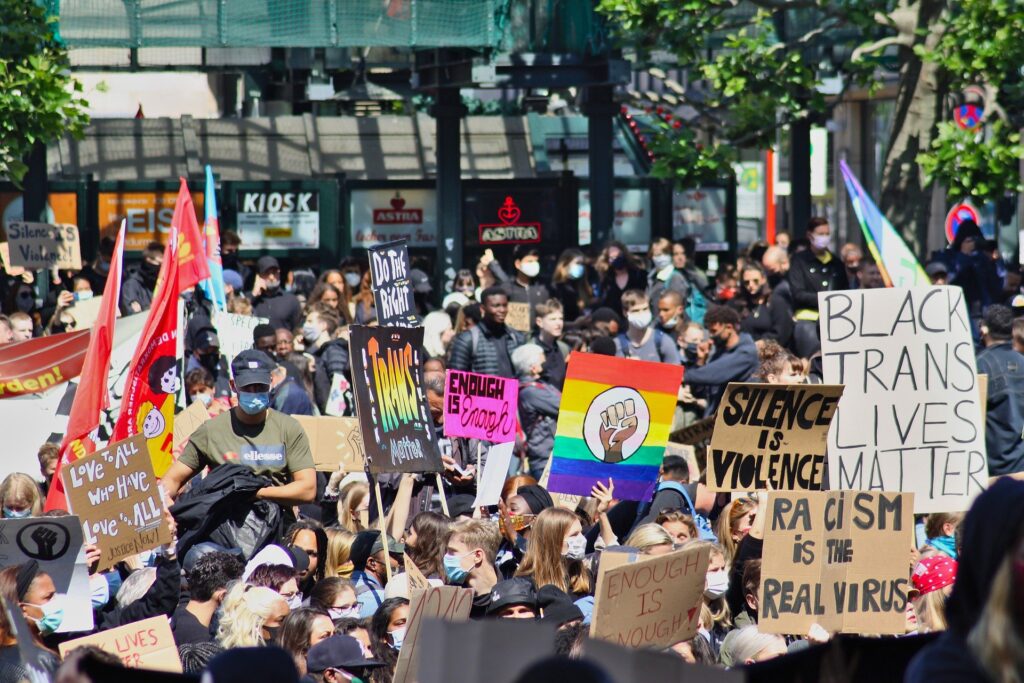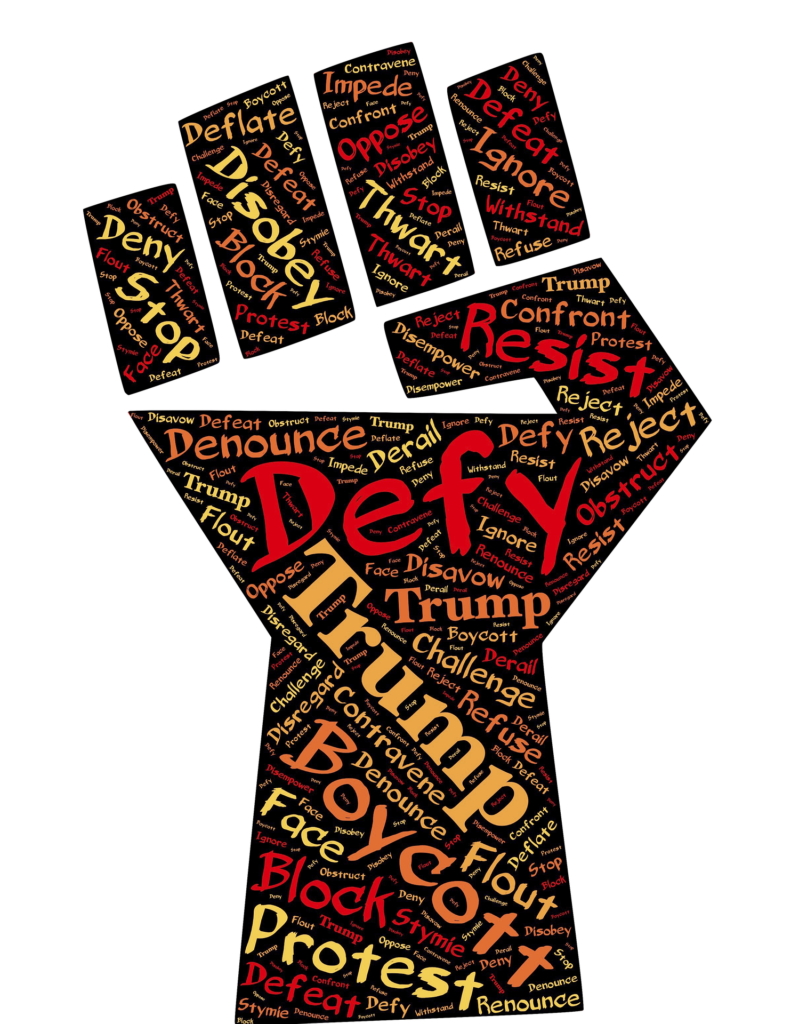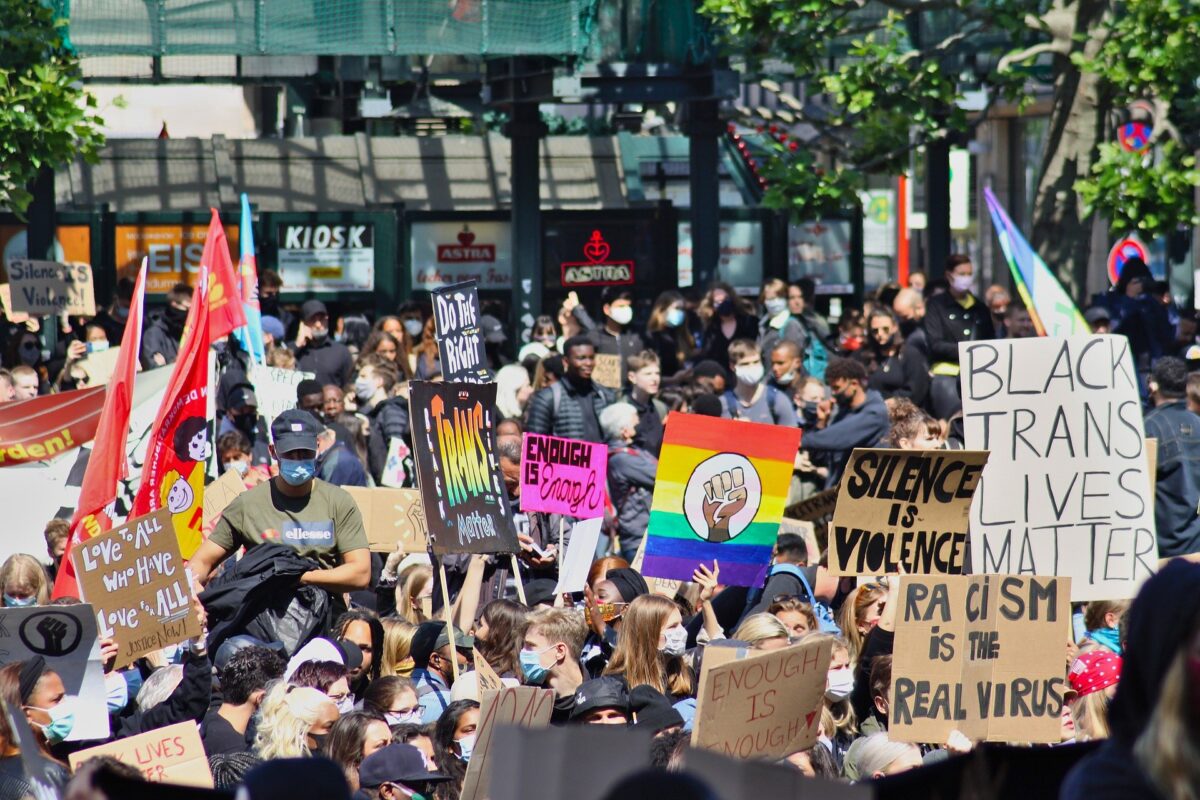

Just Because You Can, Doesn’t Mean You Should
Back when I was in high school and arguing with my mom one Fall morning about wearing an earring in my ear, I remember raising my voice at her (always a dangerous proposition!) and, in the fashion of your typical, angst-ridden adolescent, declaring my hard-earned autonomy by saying, “I have the right to do whatever I want!” Her reply at that moment, delivered in a composed, unwavering tone, was simply perfect, “Just because you can do something, doesn’t mean you should.” She was right. I mean, I have the right to march down Colfax right now wearing nothing but a tube top and a set of lace panties, but raise your hands if you want to see that one. Ok, you sick fucks, put your damn hands down. That was just meant to be a rhetorical point for crying out loud.
Fact is that in this crazy country, you have the right to do all sorts of things that you shouldn’t necessarily do. I am reminded of this every time I see the disturbingly tight-fitting and revealing outfits people somehow deem worthy for public consumption as they walk into their local Walmart. Yes, tactful discretion is hardly a vaunted American virtue, but there is a time for it nonetheless. Take the BLM protests that have erupted throughout the country over the past several months. While the vast majority of those participating in these protests are doing just that, peacefully protesting, I have come to understand why some folks have crossed that line into rioting and looting. But that doesn’t mean I think they should.
When I watched Los Angeles burn during the riots following the Rodney King verdicts in 1993, I remember feeling an unsettling contradiction between empathy for the people taking to the streets to express their anger over centuries of systemic racism and disgruntlement with those seen looting stores for the sheer expediency of getting free shit. The latter didn’t seem connected to any cause whatsoever and were instead simply looking out for themselves. That line in the sand was pretty distinct for me all the way through the Ferguson uprisings and into the demonstrations that arose following the death of George Floyd at the hands of Minneapolis police officers earlier this year.
But then I saw the now famous video of Kimberley Latrice Jones, eloquently railing against a system that has held down the black community for the past four hundred years. In that speech, Jones explained why some black people were rioting and looting, and for the first time, I got it. “Now, people are like, ‘Well, what did you gain? Well, what did you get from looting?’ I think that as long as we’re focusing on the what, we’re not focusing on the why. “ The reason people were looting according to Jones was that after years of being economically disenfranchised, this was their way of getting something, a mere pittance compared to what had been unjustly withheld from them, “We need to be questioning that why. Why are people that poor? Why are people that broke? Why are people that food insecure, that clothing insecure, that they feel like their only shot, that they are shooting their shot by walking through a broken glass window to get what they need?” Yeah, I get that. Or as Jones put it, “You broke the contract when for 400 years, we played your game and built your wealth….You broke the contract. So f*** your Target. F*** your Hall of Fame. Far as I’m concerned, they could burn this bitch to the ground, and it still wouldn’t be enough. And they are lucky that what black people are looking for is equality and not revenge.” Right on, sister.

But just because I can completely understand why black folks would loot and burn shit to the ground after years of systemic oppression and economic disadvantage, doesn’t mean I think they should. After all, what is the purpose here? If the answer is a short-sighted response of, “To get some free stuff,” then that’s just what those folks will get, but they will lose the support of many white folks along the way, who, like my former self, will see their actions as mere opportunism and self-aggrandizement.
And while the initial response to that might justifiably go something along the lines of, “What the hell do I care what white folks think anyways? They’re the ones who put us in these circumstances in the first place,” that view misses the bigger picture. If the point is, as Jones puts it, “equality” and not “revenge”, that kind of change is not going to happen without bringing white folks along for the ride. Like it or not, whites still represent the empowered majority in this country, and without their widespread support, ain’t nothing gonna change.
Don’t get me wrong- I’m not suggesting that the black community SHOULD need to make this movement palatable to whites, just that they DO have to. Like it or not, we need everybody, including whites, on board pushing this train if we are going to get it moving down the tracks towards racial equality, and while I wholeheartedly recognize how distasteful it is to suggest that after putting up with oppression for centuries that blacks should now have to pander to white sensibilities to properly market racial equality to them, if that’s what it takes to get us to the station, then let’s take away that obstacle blocking the path. Don’t give white people an out for siding with the righteousness of the BLM protests by letting them point at looters and rioters that detract from the message being sung out in the streets.
The notable difference in the BLM protests of 2020 as compared to years past is the broad support from the white community. Finally, white Americans are recognizing the need to rectify centuries of systemic racism. But that support is tenuous. Many white folks hold that same line I held back in 1993- they support peaceful protests, but their support wavers when they see looting and rioting that makes them question the righteousness of the cause. If we are going to really move the needle on race relations going forward, we need all segments of our community rowing that boat together. We need everyone to march together and protest a system that unjustly favors some over others.
To that end, you can find me protesting in downtown Denver while wearing a tube top and lace panties.
Steven Craig is the author of the best-selling novel WAITING FOR TODAY, as well as numerous published poems, short stories, and dramatic works. Read his blog TRUTH: In 1000 Words or Less every THURSDAY at www.waitingfortoday.com







